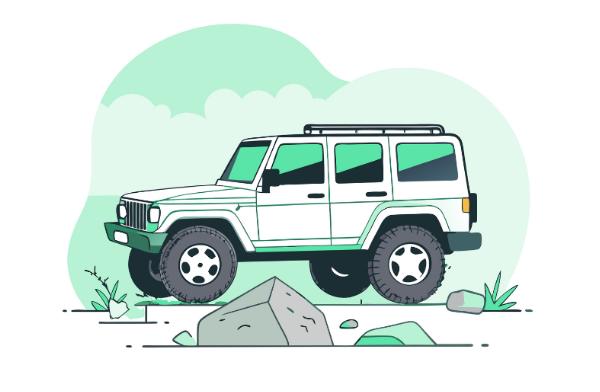Essential Tips and Practices for Off-Road Safety

Strong 8k brings an ultra-HD IPTV experience to your living room and your pocket.
Two roads diverged in a wood, and I—
I took the one less traveled by,
And that has made all the difference.
When Robert Frost contemplated taking the road less traveled, he probably wasn’t talking about the challenges of traveling an off-beaten road literally. But no matter his intentions, his words still hold in many situations. Especially for those who take up off-roading, taking the road less traveled, facing challenges is a part of their journey. When faced with tests like navigating rugged trails and muddy paths or climbing steep inclines, thorough planning and preparation are essential. A well-maintained vehicle and a fully planned trip can ensure you are ready to deal with any potentially dangerous situation and have a memorable journey. While you can brush up your driving skills by taking a low-risk driving course, anticipating all possible challenges to pre-plan a safe trip is not something you can learn from any classes. Here are some essential tips and practices for off-road safety that can help you prepare well for your trip:
Vehicle Preparation:
A well-maintained vehicle is the first requirement of any road trip. But when you’re planning an off-road trip, the first requirement is ensuring you have the right vehicle that will take you through tough terrains and adverse weather conditions easily. Once you have the right vehicle, make sure it is in good condition for the said trip. Check the tires, suspension, oil, transmission fluids, and coolants. Also, make sure the lights, brakes, windshield wipers, communication devices, and navigation systems are working properly. Carry extra tires, basic tools and jack, and recovery gear in case of emergencies.
Personal and Emergency Preparation:
After the vehicle check, you must focus on your preparation. First and foremost, prepare a well-stocked first aid kit. You might find yourself needing basic medical aid but no help would be immediately available if you’re in a remote area. Stock well on bandages, disinfectants, cotton, antiseptic creams, etc. in the first aid kit. Also carry enough flashlights, water bottles, and non-perishable food. Use GPS devices but also carry maps and compasses as alternatives for navigation. Also, ensure you have sturdy footwear and suitable and comfortable clothing. Always inform someone of your trip details before leaving for the journey and in case of any emergency or issue, stay close to your vehicle. If possible, travel in groups so that you can have assistance and company at all times.
Driving Techniques:
Driving skills that equip a driver to navigate adverse road and weather conditions are a must for off-road trips. Drivers must know how to drive on different types of roads and wet and snowy road conditions. But more than that, off-road trips require drivers to know when and how to use low gears and four-wheel drives, steer smoothly on gravel and mud roads, and other driving techniques to handle challenging terrains. Drivers can opt for a low-risk driving course from a good driving school or corporate driver training services to enhance their driving skills and develop a safety-first mindset before their trip. Additionally, drivers should also try to understand their vehicle’s capabilities and familiarize themselves with its functions.
Environmental Awareness:
Caring for the environment does not stay limited to the city life. Even when on an off-road trip exploring the wilderness, you must avoid harming and contaminating the environment. Avoid creating deep ruts on a rough road or damaging a natural terrain due to your activities. Instead, you should make it a habit to drive only on established trails and inspect the terrain on foot if you’re uncertain about driving on it. Also, avoid littering in the wild, instead gather the trash in a carry bag and dispose of it in a garbage can wherever possible. Environmental awareness and small steps for environmental safety can go a long way in preserving these wilderness areas for many more off-road trips.
The Bottom Line
Embarking on an off-road adventure can be one of the most exciting ways to connect with nature and test your driving skills. However, it is crucial to prioritize safety to protect yourself, your passengers, and the environment. By following the tips outlined, you can significantly reduce risks and ensure a safer experience. You can also enhance your driving skills with a low-risk driving course from schools or driving institutions like Corporate Driver Training Australia and reduce the chances of any accidents due to rash or immature driving. Remember, preparation and awareness are key to a successful off-road journey. Embrace these practices, and let your adventures be both thrilling and secure. Safe travels and happy off-roading!
Source Link
Note: IndiBlogHub features both user-submitted and editorial content. We do not verify third-party contributions. Read our Disclaimer and Privacy Policyfor details.


